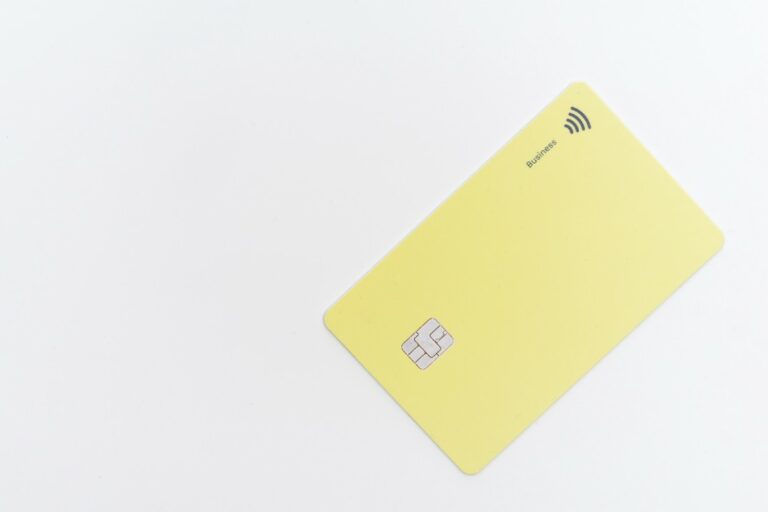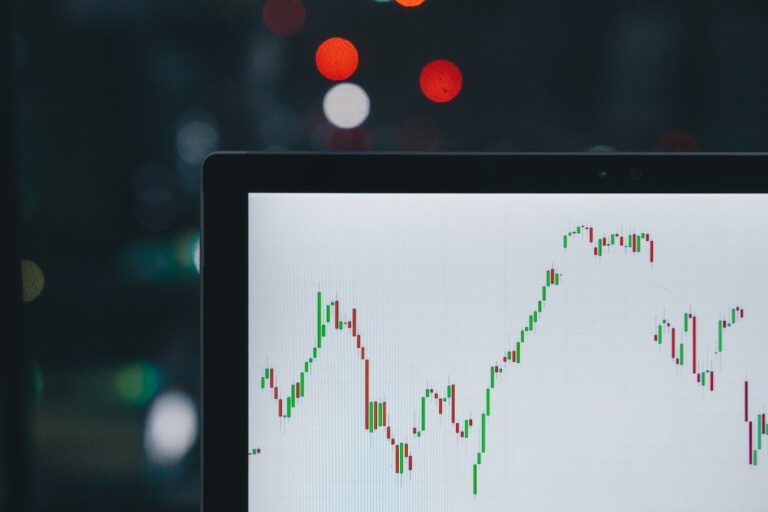Sharia compliance in gold investment

Are all that glitters sharia-compliant? Find out below!

As the world economy is facing a spiral of crisis after crisis, many are seeking to hedge their investment portfolios by investing in something more stable — and gold is suddenly famous again! While many are looking forward to knotting their portfolio to the reliability of gold, many are also wondering if there’s any issue of sharia compliance while investing in gold.
Adhering to the demand for Sharia-compliant investment

With an estimated number of 1.97 billion Muslims worldwide, demand for halal products is increasing, and we’re not just talking about halal food, cosmetic products, and consumables. The financial sector has been trying hard to adapt to the demand among Muslims for a sharia-compliant model of financial products. This is evidenced by the industry’s worth which is estimated to be around USD 2.05 trillion in 2017.
Although it is given that not all 1.97 billion Muslims are investing in gold, and among those who are investing, some may not be bothered to consider if the product is Sharia compliant or not, but those who are seeking to invest in sharia-compliant products are undeniably a lot.
Why the issue of Sharia compliance is important?
In the Islamic faith, there are two kinds of rulings — divine and man-made. Despite some divine rules that did not make it into a country’s law, behavioral economics may point out why religious belief is still an important concern to the market.
Although some religiously-prohibited practices are not considered illegal in some places, some of those that adhere to their beliefs tend to avoid such practices to avoid “sinful behavior”. Among Muslims, committing sinful acts is one thing, but having one’s sustenance fruited from a prohibited source is another worry.
It is said that if a Muslim obtains their source of income and sustenance from prohibited means, it becomes an impure part of their self and that person will face dire consequences in the days after their passing up until the impurity is cleansed.
Thus why some Muslims tend to avoid dealing with conventional banks and investment products as they deem the concept of interest as part of usury, a transaction prohibited in Islam.
Special rules in trading gold

A transaction is considered prohibited in Islam if it contains the element of ambiguity, uncertainty (e.g., gambling), and usury. Of course, there are many other prohibited transactions such as fraud, bribery, etc., but for the purpose of this discussion, those three are of utmost importance.
Uniquely, however, gold is put in a special case per Islamic law where there is a special ruling on how the commodity should be traded. For gold transactions to be deemed Sharia-compliant, they must meet two special criteria. First, an exchange of gold with gold must be of the same value.
Say, A owns an heirloom gold belonging to B’s family, thus B wishes to reclaim that heirloom gold by offering A his gold which is of higher value in exchange for reclaiming the heirloom gold.
This is not permissible in Islam. What B can do is sell his gold first, and the money he got is then used to buy the heirloom gold at a higher price.
Second, the possession of the gold must be delivered to the buyer at the time the contract was concluded. Vice-versa the full price of buying the gold must be delivered to the seller at the time the contract is concluded.
Simply put, the exchange of ownership (money to the seller, gold to the buyer) must be done within the period of the sales and purchase transaction.
In modern days, it is quite hard to physically deliver the gold at the time of the contract, thus it was generally agreed that delivery of legal possession and allocation of said gold would suffice, while the actual gold might be kept elsewhere — within a bank’s vault, for example.
Another criterion is that the gold traded must be available at the time of the contract.
For example, A is buying gold from B, but at the moment B doesn’t own the gold yet, and only if the contract is concluded B will then go and buy the gold from C, to sell it to A.
This kind of transaction is not allowed. The gold must be available to B, either physically or (if he can’t bring the physical gold around) by a certificate.
What if I buy gold using a credit card?

The usage of credit cards as a means to buy gold has been questioned before since for credit card usage, the gold buyer will pay his credit card amount after the contract is settled. So, is it prohibited, since the condition of buying gold is that the exchange must be done there and then?
The answer is no, it’s not prohibited. It is agreed among Islamic financial experts that the transaction is considered to have been completed there and then.
This is due to the fact that the gold seller will receive his full payment from the credit card company there and then, and the same goes for the buyer who will get his gold ownership also there and then. The issue of payment is only between the buyer and the credit card company.
Put simply, here is how the transaction goes: A borrows money from B (credit card company). With that money, A purchases gold from C. The contract between A and C is settled there and then. The only thing left is for A to pay back C’s money, and that’s a completely different transaction.
Gold products in the market
There are many gold products available in the market, we try to list out as many as we can. So here goes –
1. Physical Gold

This is the most common form of gold being traded. In fact, according to the data by Goldhub, the demand for gold in the form of jewelry makes up a huge chunk of the total gold demand from H1 2013 to H1 2022. Only in 2020, the demand for gold in jewelry form took a dive due to the pandemic.

There are many forms of physical gold that investors usually buy. The most common ones are gold bars and gold coins. Some also put their savings into jewelry and gold ingots.
For investments into gold in this form, there is not much concern on the Sharia compliance of its trade, as long as the rules mentioned are adhered to.
2. Gold investment account

A gold investment account is pretty much similar to buying gold physically, only that for this method, the transaction is rather simplified. Usually, banks would have the gold stored physically while allowing investors to buy said gold through the bank, without having to take the physical gold out of the bank’s safekeeping.
What investors need to do to purchase gold with this method is simply open an account with the bank and purchase the gold at the bank’s selling price. Once it is purchased, the investor will then be certified to have that amount of gold in his account.
This method is often questioned on its compliance, as many are confused since the gold is not physically transferred to the buyer. However, there is no cause for alarm as this method is considered as sharia compliant.
This is due to the fact that the ownership of the actual gold is in fact transferred to the buyer as soon as the transaction is completed, thus fulfilling the requirements needed, and the issue of whether or not it is sharia-compliant is not an issue since there is a valid transfer.
3. Gold mining stocks

This is the type of gold investment in which sharia compliance is not much of an issue at all. This is due to the fact that this investment product is not an actual investment in gold. The investor in this situation would invest in stocks of companies that are involved in gold mining activities.
The only reason why this is considered part of gold investment is that such companies’ revenue is heavily linked to gold. Say, the price of gold increases, a company that works to mine gold will most likely see a jump in its profit, and vice-versa.
For this kind of investment, the actual movement of its stocks is not exactly parallel with the gold price, since a company may still suffer losses due to other factors. Nonetheless, it is more likely than not that the price will move alongside the gold price.
In terms of sharia compliance for gold mining stocks, the only concern that an investor should be watchful of is whether the company that they’re investing in is engaged in non-sharia-compliant activities in seeking revenue.
4. Gold ETF

Investments in gold ETF is not an actual investment in gold, it is rather a commodity fund that consists of assets backed by gold. Although, the issue of sharia compliance for ETFs is a bit tricky as it depends on what sort of products the ETF consists of.
Imagine ETF as a music playlist or mixtapes. You want to listen to rock genre, but there are millions of rock songs out there. Can you listen to them all? Most likely not. So, you choose a few playlists that someone thinks truly represent the rock genre.
Playlist A might have Guns n’ Roses, ACDC, and The Rolling Stones while Playlist B may have Dire Straits, Pink Floyd, and Queen in it. All in all, it is up to you to choose which set of songs you think better represents the genre.
The same goes for ETF, a gold ETF fund will consist of a certain selected type of products that the fund manager deems best represent gold price movement. Thus, in determining whether ETF is sharia compliant or not, buyers must look at what product makes up the ETF.
Sharia-compliant ETFs consist of sharia-compliant products like physical gold itself, and non-sharia-compliant ETFs consist of non-sharia-compliant products (either part of it or all of it), such as gold CFDs (contract for differences).
The easiest way to invest safely in ETFs is by simply picking ETFs that are certified to be sharia compliant.
5. Mutual funds

A mutual fund is technically not the end product itself, where in simple terms, it is a pool of money gathered by a bunch of people to invest in a particular product. It could be used to invest in actual gold, ETFs, gold mining stocks, and many more.
Thus, the underlying principle for a mutual fund is to see where the money is going. If the mutual fund invests in actual gold or gold mining stocks or other products that are (generally) sharia compliant, then it wouldn’t be a problem.
Thus, to invest in a mutual fund, investors must do their own research to see where the mutual fund invests. Don’t worry mutual funds do disclose what kind of investment products are they holding so you can sift through it and see if any of the investment products are non-sharia compliant.
The easiest way is to engage with mutual funds that are certified as sharia-compliant, although the situation might differ in each country.
6. Gold futures and options

Futures and options are interesting areas of controversy. Technically, futures are simply a contract between a buyer and seller to purchase a certain item at a time in the future by paying a price that is already agreed upon beforehand.
For example, A (buyer) wanted to buy a ton of flour from B (seller), but A isn’t interested in the flour now, he needs it for later — perhaps a month later. What the futures contract does is that A agrees to buy the flour from B at $1,000 a month later.
If a month later the price of flour goes up to $1,500 a ton, A will save himself $500 since he will only have to pay the agreed price of $1,000. The opposite would be if the price of flour falls to $500 a ton. A will now have to pay $1,000 for what he could have gotten for half the price. Generally, this kind of contract is not against the precept of sharia since it is in a willing buyer-willing seller situation.
Options are almost like future, where two parties make a promise to buy and sell a certain product at a predetermined price, at a given time — but for options, the parties will have the option to actually purchase the product or not (hence the name “option”).
So, where’s the catch? Investors will have to pay for this options contract to keep their ‘buying window’ open, this payment is called an option’s premium.
For example, A thinks that the price of flour will go up in a month, so he executes an options contract with B, where within the span of one month, he can choose to buy it from B at an agreed price.
What if a month passed and the price still doesn’t go up? A can either call it off and lose his money (that he paid for options premium), or he could ask to extend the period if he thinks that the price will rise soon — by paying more money, of course.
However, the nature of futures and options practiced in the investment world according to a lot of sharia financial experts is akin to a ‘bet’ rather than a genuine contract. Thus, there are opinions that futures in investment are considered non-sharia compliant.
In Islamic finance, forward sales are not allowed, but I can promise to sell you something in the future, and you can promise to buy it from me, and we can fix the price. We have bypassed the rules and created a synthetic forward.
— Safdar Alam (@SafdarAlam) April 23, 2020
Is this deceptive or ok?
7. Contract for Difference (CFD)

A traditional CFD is a type of investment where the investors don’t actually own the underlying investment, but it’s an agreement where the investor would deal with their broker to exchange the difference of an asset’s value.
For example, if you’re thinking of buying gold CFD, you’re not actually buying gold but the difference in value between the gold at the time you bought it and at the time you sell it.
Thus, this kind of transaction is not permissible due to lack of actual transaction e.g., transfer of rights & ownership of subject matter. The nature of this investment is more akin to gambling and thus is deemed non-sharia compliant by most Islamic scholars.
and permissible according to all scholars that I know.
— Safdar Alam (@SafdarAlam) April 5, 2020
However, if you do the same thing with CFD, ie buy GBPUSD at 1.20 and sell at 1.25, this is just taking a position on the price of GBPUSD. This is a DERIVATIVE – it is a pure bet. This is not permissible according to every
All in all, any investment product that seeks to be sharia-compliant must be in line with the previously mentioned rule which prohibits usury, uncertainty, and ambiguity.
The easiest way for beginners is to seek products that have obtained certificates of sharia compliance or any acknowledgment from any accredited bodies/individuals.
Additional information:
For those who are interested in gold investments, there are many companies out there offering gold investment products such as Centerra Gold Inc. (CSE: TG), a gold mining company; Sandstorm Gold Ltd. (TSE: SSL), a gold royalty company; or Barrick Gold (NYSE: GOLD), a gold mining company. Of course, these are just a few namedrops of the companies that you may look to invest in but be sure to have your own research done before purchasing.
None of the material above or on our website is to be construed as a solicitation, recommendation or offer to buy or sell any security, financial product or instrument. Investors should carefully consider if the security and/or product is suitable for them in view of their entire investment portfolio. All investing involves risks, including the possible loss of money invested, and past performance does not guarantee future performance.






